Before the 2018 baseball season began, we tried to define what "success" could look like for each of the 30 teams. Obviously, winning a World Series would count as successful no matter the team, but baseball's rewards aren't nearly so one-dimensional as that. Teams enter seasons with different goals and priorities and advantages, at different stages of their own historical narratives, and having made different investments for the next six or seven months. Further, the moments a fan or player remembers 50 years later might well come out of nowhere and have little to do with a World Series parade.
This is a brief exit interview for the 30 team seasons we just watched. Mostly, we'll be keeping it simple, answering a variation of one basic question: If you had told a team's front office, its uniformed personnel, its owner and its fans this is what would happen, would it have embraced that outcome or spun again?
The Successes That Felt Great
1. Boston Red Sox: The Year They Won The World Series
 We said success for the Red Sox would be reaching the American League Division Series; their competition was daunting and the Red Sox appeared to be in the bottom of the superteams tier. Instead, Boston not only won the World Series, but it might well have taken the early lead for best team of the 21st century. Boston's 108 regular-season wins are the second most of the 2000s, and the Red Sox promenaded through arguably the toughest postseason schedule in history. An Opening Day loss excluded, this might be the closest thing we've ever seen to a season with no bad days.
We said success for the Red Sox would be reaching the American League Division Series; their competition was daunting and the Red Sox appeared to be in the bottom of the superteams tier. Instead, Boston not only won the World Series, but it might well have taken the early lead for best team of the 21st century. Boston's 108 regular-season wins are the second most of the 2000s, and the Red Sox promenaded through arguably the toughest postseason schedule in history. An Opening Day loss excluded, this might be the closest thing we've ever seen to a season with no bad days.
2. Milwaukee Brewers: The Year Christian Yelich (Probably) Won The MVP
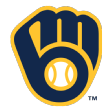 We said success would be making the National League Division Series, which the Brewers accomplished by winning their second-ever NL Central title. But they did more than that, finishing with the best NL record, inventing a new kind of postseason pitching staff, dispatching the Rockies in the NLDS and coming within one game of making their first World Series since 1982. They made two huge offseason acquisitions that will be with them for years to come: One is probably going to be named the NL MVP later this month, and the other (Lorenzo Cain) was, by some WAR models, even better.
We said success would be making the National League Division Series, which the Brewers accomplished by winning their second-ever NL Central title. But they did more than that, finishing with the best NL record, inventing a new kind of postseason pitching staff, dispatching the Rockies in the NLDS and coming within one game of making their first World Series since 1982. They made two huge offseason acquisitions that will be with them for years to come: One is probably going to be named the NL MVP later this month, and the other (Lorenzo Cain) was, by some WAR models, even better.
3. Oakland Athletics: The Year Of Blake Treinen's 0.78 ERA
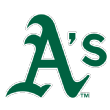 The A's were 125-1 underdogs to win the World Series, same as the Reds and worse than the Tigers and the White Sox. And unlike the Braves -- who were also a real long shot and who also made the playoffs -- the A's weren't widely seen as a team just a year away from being really good. Rather, Oakland looked like a team that could bounce between 68 and 82 wins for years to come, and so we said success would be playing "meaningful games in the final 10 days of the season," and finishing the year with an easily identifiable "core" of stars (or near-stars) to build a good team around. Behind some huge breakouts -- and some small breakouts -- they made the playoffs, without any obvious signs of being a fluke. They had the best defense in baseball, and there's a case -- based on road stats, which measure all teams on mostly equal footing -- that they had the best offense in baseball too.
The A's were 125-1 underdogs to win the World Series, same as the Reds and worse than the Tigers and the White Sox. And unlike the Braves -- who were also a real long shot and who also made the playoffs -- the A's weren't widely seen as a team just a year away from being really good. Rather, Oakland looked like a team that could bounce between 68 and 82 wins for years to come, and so we said success would be playing "meaningful games in the final 10 days of the season," and finishing the year with an easily identifiable "core" of stars (or near-stars) to build a good team around. Behind some huge breakouts -- and some small breakouts -- they made the playoffs, without any obvious signs of being a fluke. They had the best defense in baseball, and there's a case -- based on road stats, which measure all teams on mostly equal footing -- that they had the best offense in baseball too.
4. Atlanta Braves: The Year That Came Early
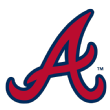 We said success would be to, among other possibilities, "make the playoffs, shock the world." Atlanta did so, a year ahead of schedule. They also had the best 20-year-old position player in baseball (Ronald Acuna Jr.), the best 21-year-old position player in baseball (Ozzie Albies) and (with the possible exception of the Rockies) the best young pitching staff in baseball. So they not only made the playoffs a year ahead of schedule, but the "scheduled" years look even more promising than they did seven months ago.
We said success would be to, among other possibilities, "make the playoffs, shock the world." Atlanta did so, a year ahead of schedule. They also had the best 20-year-old position player in baseball (Ronald Acuna Jr.), the best 21-year-old position player in baseball (Ozzie Albies) and (with the possible exception of the Rockies) the best young pitching staff in baseball. So they not only made the playoffs a year ahead of schedule, but the "scheduled" years look even more promising than they did seven months ago.
5. Houston Astros: The Year Of The Franchise-Record 103 Wins
 We said success would be winning a World Series, the only thing that could substantially advance their claim on a historically significant "dynasty." We've recalibrated that assessment. The Astros' talent was loud and convincing this year, as they won 103 games -- two more than they did last year -- and swept Cleveland in the ALDS. They lost to the Red Sox, but in the same way Mickey Mantle and Duke Snider and Willie Mays all lifted the others' statures, this generation's superteams might actually be pulling each other onto a more sacred realm.
We said success would be winning a World Series, the only thing that could substantially advance their claim on a historically significant "dynasty." We've recalibrated that assessment. The Astros' talent was loud and convincing this year, as they won 103 games -- two more than they did last year -- and swept Cleveland in the ALDS. They lost to the Red Sox, but in the same way Mickey Mantle and Duke Snider and Willie Mays all lifted the others' statures, this generation's superteams might actually be pulling each other onto a more sacred realm.
6. Colorado Rockies: The Year Of Kyle Freeland
 We said success would be making a division series, and they did it. It's the first time the Rockies have made the postseason in consecutive years and the first time the Rockies have ever had two really good starting pitchers at the same time. Freeland had the best pitching season in franchise history, and German Marquez's season was in the top 10; only one team in baseball got more WAR out of their top two starters, and neither of these two is older than 25.
We said success would be making a division series, and they did it. It's the first time the Rockies have made the postseason in consecutive years and the first time the Rockies have ever had two really good starting pitchers at the same time. Freeland had the best pitching season in franchise history, and German Marquez's season was in the top 10; only one team in baseball got more WAR out of their top two starters, and neither of these two is older than 25.
7. New York Yankees: The Year 12 Guys Had Double-Digit Home Runs
 We said that "as long as they don't move backward it's hard to see this not being an incredibly fun season," defining one route to "success" as making the division series and breaking the all-time home run record. They did both. To soothe the terrible disappointments of Gary Sanchez and Greg Bird, the Yankees got the tremendous debuts of Miguel Andujar and Gleyber Torres. Along with all that youth, they got to host the old age of CC Sabathia, whose late-30s revival is putting him on the cusp of the Hall of Fame. The Yankees were Las Vegas favorites entering the season, and after, yes, an incredibly fun season, they might be again next March.
We said that "as long as they don't move backward it's hard to see this not being an incredibly fun season," defining one route to "success" as making the division series and breaking the all-time home run record. They did both. To soothe the terrible disappointments of Gary Sanchez and Greg Bird, the Yankees got the tremendous debuts of Miguel Andujar and Gleyber Torres. Along with all that youth, they got to host the old age of CC Sabathia, whose late-30s revival is putting him on the cusp of the Hall of Fame. The Yankees were Las Vegas favorites entering the season, and after, yes, an incredibly fun season, they might be again next March.
The Successes That Felt A Bit Disappointing
8. Los Angeles Dodgers: The Year Of Game 163
 It's impossible to judge these Dodgers' good, incomplete seasons without knowing how this run of NL West domination ultimately ends: Will the billions they've spent eventually lead to a World Series title? If so, none of this "Buffalo Bills of baseball" stuff will matter, and their many postseason and World Series appearances will bolster their case for greatness. If not, the whole project will be good but incomplete, and the World Series losses will take on extra poignancy: The project didn't just fail, but it failed and got so close.
It's impossible to judge these Dodgers' good, incomplete seasons without knowing how this run of NL West domination ultimately ends: Will the billions they've spent eventually lead to a World Series title? If so, none of this "Buffalo Bills of baseball" stuff will matter, and their many postseason and World Series appearances will bolster their case for greatness. If not, the whole project will be good but incomplete, and the World Series losses will take on extra poignancy: The project didn't just fail, but it failed and got so close.
With all that said, the Dodgers needed to play 163 games just to fend off the Rockies, a humbling experience.
9. Chicago Cubs: The Year Of Javy Baez
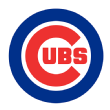 We said success would be "to build up their dynasty claim, which probably requires three titles in a short time; or to stay relevant, which is to say, to avoid disaster, keep a 90-win outlook, keep their season-ticket sales strong and justify their long rebuilds with long competitive windows." The Cubs no longer look ascendant; virtually every starting pitcher or regular position player was worse this year than in 2016 or 2017, with the obvious exception being Baez. But they won 95 games, tied for the best record in the NL through 162 games, and they almost certainly will be playing next October.
We said success would be "to build up their dynasty claim, which probably requires three titles in a short time; or to stay relevant, which is to say, to avoid disaster, keep a 90-win outlook, keep their season-ticket sales strong and justify their long rebuilds with long competitive windows." The Cubs no longer look ascendant; virtually every starting pitcher or regular position player was worse this year than in 2016 or 2017, with the obvious exception being Baez. But they won 95 games, tied for the best record in the NL through 162 games, and they almost certainly will be playing next October.
10. Tampa Bay Rays: The Year Of Blake Snell
 At the season's midpoint, we reassessed the Rays' goals based on the first half. They had played fairly well but were nowhere near the top of the AL East, which was dominated by two teams on 100-win paces. Perhaps a bit too dismissively, we wrote "the Rays will spend the rest of the season in a posture of surrender, probably hoping they don't accidentally win 91 games and feel the pressure to try for the second wild-card spot."
At the season's midpoint, we reassessed the Rays' goals based on the first half. They had played fairly well but were nowhere near the top of the AL East, which was dominated by two teams on 100-win paces. Perhaps a bit too dismissively, we wrote "the Rays will spend the rest of the season in a posture of surrender, probably hoping they don't accidentally win 91 games and feel the pressure to try for the second wild-card spot."
In fact, the Rays did win 90 (not 91) games, and they didn't blow anything up getting there; they just played well, thanks to a surprisingly good lineup, a historic Snell season and a new scheme that mostly worked. They also were the big beneficiaries at the trade deadline, acquiring Tommy Pham at the floor of his value -- he hit .343/.448/.622 after the trade -- and dealing Chris Archer for a trio of younger players who are arguably as valuable in the present (let alone the future, and not even considering salaries) as Archer is. The Rays didn't actually go anywhere -- no playoff spot, not even close -- and it can be exhausting watching them "win" every transaction (that is, get younger, cheaper) without ever really getting close to the top of the standings. But it's less exhausting than seeing the self-disembowelment of rebuilding teams that don't care that they lose.
11. Cleveland Indians: The Year The Bullpen Collapsed
 Cleveland almost met our standard -- make a division series, draw 2 million fans and avoid catastrophic injuries -- without ever really convincing us. They made a division series, but they got swept out of it quickly. They drew 1.9 million fans, a small decline from 2018. And they didn't have any catastrophic injuries, which means they'll still be the easy favorites in the AL Central next year. However, the strength of the 2016-2017 teams -- the bullpen -- turned into an unmanageable liability, and it cost them a small fortune (super prospect Francisco Mejia traded midseason for Brad Hand and Adam Cimber) to steady. Jose Ramirez and Francisco Lindor were a pair of MVP candidates in their mid-20s, so that part worked.
Cleveland almost met our standard -- make a division series, draw 2 million fans and avoid catastrophic injuries -- without ever really convincing us. They made a division series, but they got swept out of it quickly. They drew 1.9 million fans, a small decline from 2018. And they didn't have any catastrophic injuries, which means they'll still be the easy favorites in the AL Central next year. However, the strength of the 2016-2017 teams -- the bullpen -- turned into an unmanageable liability, and it cost them a small fortune (super prospect Francisco Mejia traded midseason for Brad Hand and Adam Cimber) to steady. Jose Ramirez and Francisco Lindor were a pair of MVP candidates in their mid-20s, so that part worked.
The Failures That Felt Reasonably OK, For Failure
12. San Diego Padres: The Year Of Fernando Tatis Jr. Getting Closer
 We offered the rebuilding Padres a hodgepodge of options for success, from a breakout minor league performance by a recent first-round draft pick to an inspiring Home Run Derby showing by a veteran first baseman to an out-of-nowhere playoff berth. The Padres definitely didn't get the latter, and their very expensive veteran first baseman, Eric Hosmer, slugged .398 in the first year of an eight-year deal. But the Padres' farm system saw a number of jumps by prospects, and the trade deadline netted an elite young talent -- catcher Mejia from the Indians -- so the Padres now have the deepest pool of young talent in the minors, along with the best single prospect in baseball. There was basically no intention of doing better than that this year.
We offered the rebuilding Padres a hodgepodge of options for success, from a breakout minor league performance by a recent first-round draft pick to an inspiring Home Run Derby showing by a veteran first baseman to an out-of-nowhere playoff berth. The Padres definitely didn't get the latter, and their very expensive veteran first baseman, Eric Hosmer, slugged .398 in the first year of an eight-year deal. But the Padres' farm system saw a number of jumps by prospects, and the trade deadline netted an elite young talent -- catcher Mejia from the Indians -- so the Padres now have the deepest pool of young talent in the minors, along with the best single prospect in baseball. There was basically no intention of doing better than that this year.
13. St. Louis Cardinals: The Year Of Matt Carpenter's Salsa
 We said success would be making the playoffs, and they missed it by two games. The Cardinals now have missed the playoffs three consecutive years for the first time since the late 1990s; at the same time, they've won more games in that span than all but seven other teams in baseball.
We said success would be making the playoffs, and they missed it by two games. The Cardinals now have missed the playoffs three consecutive years for the first time since the late 1990s; at the same time, they've won more games in that span than all but seven other teams in baseball.
14. Los Angeles Angels: The Year Of The Two-Way Superstar
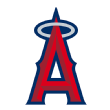 We said success would be making the playoffs or getting to watch Shohei Ohtani "turn out to be as fun/good as his press clippings have promised." He was! Now add Mike Trout hitting new peaks -- it was his best season on a per-game basis -- and it was the most entertaining 80-82 team in years. But that was a one-year windfall, and the demands on this big-market team go up sharply next year. Ohtani's novelty will fade, especially when he's limited to a one-way role while his pitching arm recovers from surgery. Next October, the Angels will hit 10 years without a postseason win, unless they win a postseason game first.
We said success would be making the playoffs or getting to watch Shohei Ohtani "turn out to be as fun/good as his press clippings have promised." He was! Now add Mike Trout hitting new peaks -- it was his best season on a per-game basis -- and it was the most entertaining 80-82 team in years. But that was a one-year windfall, and the demands on this big-market team go up sharply next year. Ohtani's novelty will fade, especially when he's limited to a one-way role while his pitching arm recovers from surgery. Next October, the Angels will hit 10 years without a postseason win, unless they win a postseason game first.
15. Philadelphia Phillies: The Year Gabe Kapler Took Over
 We said success would be making the playoffs or getting a couple of star performances from the league's youngest lineup. They failed to do either, and -- after raising hopes by holding first place into mid-August -- they stumbled to a 16-33 finish that dropped them under .500. That all said: They did raise hopes, and most of the campaign was pretty fun, especially for a season expected to be a bridge to this winter's free-agent class.
We said success would be making the playoffs or getting a couple of star performances from the league's youngest lineup. They failed to do either, and -- after raising hopes by holding first place into mid-August -- they stumbled to a 16-33 finish that dropped them under .500. That all said: They did raise hopes, and most of the campaign was pretty fun, especially for a season expected to be a bridge to this winter's free-agent class.
16. Arizona Diamondbacks: The Year Of Patrick Corbin
 We said success would be making the playoffs or winning 90 games. They started September tied for first place and ended it nine games behind both the Rockies and the Dodgers, finishing 8-18. Everybody got older.
We said success would be making the playoffs or winning 90 games. They started September tied for first place and ended it nine games behind both the Rockies and the Dodgers, finishing 8-18. Everybody got older.
17. Pittsburgh Pirates: The Year Of The Chris Archer Trade
 We said success could be getting "unexpectedly big returns at the trade deadline," but the Pirates instead got unexpectedly talked into being buyers, rather than sellers, at the trade deadline. The addition of Archer set them up for a wild-card bid that never developed (they went 10-17 in August) and cost them three players who could be helping Tampa Bay well into the 2020s.
We said success could be getting "unexpectedly big returns at the trade deadline," but the Pirates instead got unexpectedly talked into being buyers, rather than sellers, at the trade deadline. The addition of Archer set them up for a wild-card bid that never developed (they went 10-17 in August) and cost them three players who could be helping Tampa Bay well into the 2020s.
18. New York Mets: The Year Of Jacob deGrom's 1.70 ERA
 Oh, it was bad. They finished fourth in a very winnable division, with all the usual Mets melodrama. But deGrom was the best pitcher in baseball; deGrom and Noah Syndergaard were the best 1-2; and Zack Wheeler's breakout gives the Mets the National League's best 1-2-3 going into next season. It was bad, but for the 21 hours between each game -- when fans got to stare at the next day's starting pitching matchup -- it felt like the Mets had something.
Oh, it was bad. They finished fourth in a very winnable division, with all the usual Mets melodrama. But deGrom was the best pitcher in baseball; deGrom and Noah Syndergaard were the best 1-2; and Zack Wheeler's breakout gives the Mets the National League's best 1-2-3 going into next season. It was bad, but for the 21 hours between each game -- when fans got to stare at the next day's starting pitching matchup -- it felt like the Mets had something.
19. Cincinnati Reds: The Year Joey Votto's Power Went Away
 We said success would be two of the following: winning 82 games and playing meaningful contests in the final two weeks of the season; having one of the NL's top five offenses; and finding three starters with league-average ERAs to throw a combined 500 innings. They failed, in almost exactly the same way they did in 2017: some really fun hitters (though not a top-five offense) and absolutely no starting pitching. Nobody in the rotation had a league-average ERA, including prospective ace Luis Castillo. Only Castillo reached 150 innings. There are a half-dozen hitters in their lineup that most teams would love to have, but their pitching just keeps getting further away.
We said success would be two of the following: winning 82 games and playing meaningful contests in the final two weeks of the season; having one of the NL's top five offenses; and finding three starters with league-average ERAs to throw a combined 500 innings. They failed, in almost exactly the same way they did in 2017: some really fun hitters (though not a top-five offense) and absolutely no starting pitching. Nobody in the rotation had a league-average ERA, including prospective ace Luis Castillo. Only Castillo reached 150 innings. There are a half-dozen hitters in their lineup that most teams would love to have, but their pitching just keeps getting further away.
The Failures That Felt Bad
20. Seattle Mariners: The Year Of The Misleading Run Differential
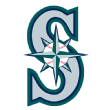 We said success was making the playoffs or winning 90 games; they won 89, and no, we're not giving them any extra leash. It turned out 89 wins was a whopping eight games away from the second wild-card spot, and at this point, AL teams looking ahead need to figure out how to get to 95 if they're going to end, say, the longest playoff drought in the sport. The Mariners were outscored on the season, they had the oldest lineup in the majors, their biggest star was suspended for PEDs in the middle of a pennant race and they were just 36-42 from July 1 onward, so it never really felt like this was the first step toward greatness.
We said success was making the playoffs or winning 90 games; they won 89, and no, we're not giving them any extra leash. It turned out 89 wins was a whopping eight games away from the second wild-card spot, and at this point, AL teams looking ahead need to figure out how to get to 95 if they're going to end, say, the longest playoff drought in the sport. The Mariners were outscored on the season, they had the oldest lineup in the majors, their biggest star was suspended for PEDs in the middle of a pennant race and they were just 36-42 from July 1 onward, so it never really felt like this was the first step toward greatness.
21. Minnesota Twins: The Year Joe Mauer Probably Retired
 We said success would be making the playoffs -- they were the wild card in 2017, and young -- or, behind at least one star performance from a young player, getting close to them. But the Twins moved backward this year, playing much worse while fielding an older-than-average lineup and pitching staff. Five years ago, they had the best farm system in baseball, and while these multiyear stories take a long time to resolve, it looks increasingly like that crop -- the Byron Buxton/Miguel Sano group -- is going to produce only that one wild-card game. For good measure, they lost 15 walk-off games, the most in baseball and certainly the most depressing way to lose.
We said success would be making the playoffs -- they were the wild card in 2017, and young -- or, behind at least one star performance from a young player, getting close to them. But the Twins moved backward this year, playing much worse while fielding an older-than-average lineup and pitching staff. Five years ago, they had the best farm system in baseball, and while these multiyear stories take a long time to resolve, it looks increasingly like that crop -- the Byron Buxton/Miguel Sano group -- is going to produce only that one wild-card game. For good measure, they lost 15 walk-off games, the most in baseball and certainly the most depressing way to lose.
22. Washington Nationals: The Year Of Juan Soto
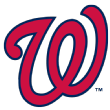 In 2009 and 2010, the Nationals drafted the two best draft prospects in history, Stephen Strasburg and Bryce Harper. It was a good era. They won a lot of games, and Strasburg and Harper each did things Washington fans can tell their grandchildren about. The Nationals also never won a postseason series with the two -- and with Harper hitting free agency, that storyline is probably now over. It was a failure, and it ended with an ugly season: Harper slumped for much of it; new manager Davey Martinez lost the clubhouse; and the Nationals went from overwhelming preseason NL East favorites to a third-place finish.
In 2009 and 2010, the Nationals drafted the two best draft prospects in history, Stephen Strasburg and Bryce Harper. It was a good era. They won a lot of games, and Strasburg and Harper each did things Washington fans can tell their grandchildren about. The Nationals also never won a postseason series with the two -- and with Harper hitting free agency, that storyline is probably now over. It was a failure, and it ended with an ugly season: Harper slumped for much of it; new manager Davey Martinez lost the clubhouse; and the Nationals went from overwhelming preseason NL East favorites to a third-place finish.
And yet: Soto had one of the greatest age-19 seasons in history. A new era, maybe a good era.
23. Toronto Blue Jays: The Year Josh Donaldson Left
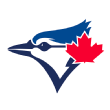 We lumped the Blue Jays with the Orioles and Rays before the season and said success would be either sneaking into a good season or having a hugely profitable trade deadline. The Rays did the former; the Orioles did the latter; and the Blue Jays got stuck in between. Donaldson's trade value collapsed as he played out his walk year with shoulder and calf injuries. Marcus Stroman and Aaron Sanchez could have been the foundation of the next good Blue Jays team; both had bad years.
We lumped the Blue Jays with the Orioles and Rays before the season and said success would be either sneaking into a good season or having a hugely profitable trade deadline. The Rays did the former; the Orioles did the latter; and the Blue Jays got stuck in between. Donaldson's trade value collapsed as he played out his walk year with shoulder and calf injuries. Marcus Stroman and Aaron Sanchez could have been the foundation of the next good Blue Jays team; both had bad years.
24. Texas Rangers: The Year Bartolo Colon Was 45
 We said success would be playing meaningful games late or getting at least one star performance from somebody 24 or younger. They did neither. They matched their worst record since 1985, and 70 percent of their plate appearances went to below-average hitters. They didn't have anything close to a star on the team -- Mike Minor led the team in WAR, and he would have been seventh on the Indians or Red Sox -- and they didn't play a meaningful game after about mid-April. The highlight of the season might well have been not trading Adrian Beltre at the deadline.
We said success would be playing meaningful games late or getting at least one star performance from somebody 24 or younger. They did neither. They matched their worst record since 1985, and 70 percent of their plate appearances went to below-average hitters. They didn't have anything close to a star on the team -- Mike Minor led the team in WAR, and he would have been seventh on the Indians or Red Sox -- and they didn't play a meaningful game after about mid-April. The highlight of the season might well have been not trading Adrian Beltre at the deadline.
25. Detroit Tigers: A Year
 The most forgettable season in baseball. Not sure it happened.
The most forgettable season in baseball. Not sure it happened.
26. San Francisco Giants: The Year GM Bobby Evans Got Fired
 We said success would be winning 90 games or completely turning over the roster at the trade deadline, and the Giants did neither, staying plausibly in the race until a franchise-record 11-game losing streak to start September. This year's Giants were old and extremely expensive -- the highest payroll in the National League, by some accounting -- and so we wrote before the season that "if they miss the playoffs in 2018, it might be a long time before we take the Giants seriously." And that seems right. Their team's nominee for the Hank Aaron Award -- given to the best hitter in the league -- was Evan Longoria, who hit .244/.281/.413.
We said success would be winning 90 games or completely turning over the roster at the trade deadline, and the Giants did neither, staying plausibly in the race until a franchise-record 11-game losing streak to start September. This year's Giants were old and extremely expensive -- the highest payroll in the National League, by some accounting -- and so we wrote before the season that "if they miss the playoffs in 2018, it might be a long time before we take the Giants seriously." And that seems right. Their team's nominee for the Hank Aaron Award -- given to the best hitter in the league -- was Evan Longoria, who hit .244/.281/.413.
27. Chicago White Sox: The Year Yolmer Sanchez Invented The Self-Dousing Celebration
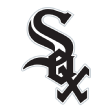 The White Sox looked like a team climbing out of the rebuild gulch, with most of their horde of young talent in or near the majors and Vegas giving them a surprisingly high chance of making the postseason. We said they "could call this season successful with 80 walks from Yoan Moncada, a 94 mph average fastball from Lucas Giolito, James Shields pitching well until the trade deadline and half a dozen prospects moving steadily toward maturity. Or any of a hundred other possibilities." But the bridge season collapsed, and they ended up with their sixth consecutive losing season, their first 100-loss campaign since 1970 and a ton of question marks where established young stars were supposed to now be. Moncada walked 67 times but struck out a major league-leading 217 times; Giolito's average fastball was 93 mph, but he led the majors in walks issued and earned runs allowed; and Shields led the majors in losses and finished the season still in Chicago, as the White Sox managed to trade only three players (all of them relievers, two in minor deals) in July and August. The season's highlight was the electric debut of Michael Kopech; within a month, he had undergone Tommy John surgery.
The White Sox looked like a team climbing out of the rebuild gulch, with most of their horde of young talent in or near the majors and Vegas giving them a surprisingly high chance of making the postseason. We said they "could call this season successful with 80 walks from Yoan Moncada, a 94 mph average fastball from Lucas Giolito, James Shields pitching well until the trade deadline and half a dozen prospects moving steadily toward maturity. Or any of a hundred other possibilities." But the bridge season collapsed, and they ended up with their sixth consecutive losing season, their first 100-loss campaign since 1970 and a ton of question marks where established young stars were supposed to now be. Moncada walked 67 times but struck out a major league-leading 217 times; Giolito's average fastball was 93 mph, but he led the majors in walks issued and earned runs allowed; and Shields led the majors in losses and finished the season still in Chicago, as the White Sox managed to trade only three players (all of them relievers, two in minor deals) in July and August. The season's highlight was the electric debut of Michael Kopech; within a month, he had undergone Tommy John surgery.
28. The Baltimore Orioles: The Year Buck Showalter Got Fired
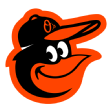 Hoo-boy. The Orioles, according to Jeff Sullivan, underperformed their projections by more than any team in the projections era. Only three teams since 1900 have ever lost more games than these Orioles, who -- most distressingly -- were actually trying to be good. They signed veteran pitchers in the offseason. They spent money and talked about being committed to winning. This was not a rebuild everybody had a hard hat on for. This was Stephanie driving a car through the kitchen.
Hoo-boy. The Orioles, according to Jeff Sullivan, underperformed their projections by more than any team in the projections era. Only three teams since 1900 have ever lost more games than these Orioles, who -- most distressingly -- were actually trying to be good. They signed veteran pitchers in the offseason. They spent money and talked about being committed to winning. This was not a rebuild everybody had a hard hat on for. This was Stephanie driving a car through the kitchen.
And yet! Beyond the obvious disappointment, the fact that virtually every player had a worse year than he was expected to have, there was the silver lining: The Orioles came out of the trade deadline with 15 new prospects. That doesn't salvage the season -- they're listed 28th here, after all -- but it made it easier for the club to clear the decks and start fresh.
29. Kansas City Royals: The Year Cain, Hosmer And (Eventually) Mike Moustakas Were Gone
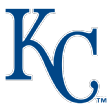 There's a line in a Hemingway novel about going bankrupt: It happens "gradually and then suddenly." The 2013-15 Royals were that plucky team of homegrown stars, unorthodox moves and an against-the-grain playing style, and they humiliated the projection systems that routinely underrated them. But without anything dramatic changing, they became a .500 team for a bit, and then -- suddenly -- everybody good was gone and they were one of the worst teams of the decade. Unlike the Orioles, there wasn't a huge trade-deadline transition, the Royals' farm system is in the league's lower third and nobody has cleared the decks yet. (Their ace is still snarking about projection systems, though.) Silver lining: Adalberto Mondesi broke out and might already be a star. Silver poisoning: The Royals' bullpen blew 51 leads, the ugliest, most self-loathing way to be terrible.
There's a line in a Hemingway novel about going bankrupt: It happens "gradually and then suddenly." The 2013-15 Royals were that plucky team of homegrown stars, unorthodox moves and an against-the-grain playing style, and they humiliated the projection systems that routinely underrated them. But without anything dramatic changing, they became a .500 team for a bit, and then -- suddenly -- everybody good was gone and they were one of the worst teams of the decade. Unlike the Orioles, there wasn't a huge trade-deadline transition, the Royals' farm system is in the league's lower third and nobody has cleared the decks yet. (Their ace is still snarking about projection systems, though.) Silver lining: Adalberto Mondesi broke out and might already be a star. Silver poisoning: The Royals' bullpen blew 51 leads, the ugliest, most self-loathing way to be terrible.
30. Miami Marlins: The Year They Beaned Acuna For No Reason Other Than He Was Better Than Them
 We said success would be giving fans any reason to care, to feel emotions and be in love with the team. By and large, fans just turned away. The Marlins' attendance, already the lowest in baseball in 2017, dropped by almost half in 2018, to a franchise-low -- a Marlins franchise low! -- 811,000. Thirty-nine of the 50 lowest-attendance games in baseball this year were in Miami. And because it's the Marlins, they're most likely going to punctuate the calendar year by trading their best player, J.T. Realmuto, which will mean 23 of the 25 best players in franchise history will have been traded away, rather than kept until free agency (or, heaven forbid, kept until retirement).
We said success would be giving fans any reason to care, to feel emotions and be in love with the team. By and large, fans just turned away. The Marlins' attendance, already the lowest in baseball in 2017, dropped by almost half in 2018, to a franchise-low -- a Marlins franchise low! -- 811,000. Thirty-nine of the 50 lowest-attendance games in baseball this year were in Miami. And because it's the Marlins, they're most likely going to punctuate the calendar year by trading their best player, J.T. Realmuto, which will mean 23 of the 25 best players in franchise history will have been traded away, rather than kept until free agency (or, heaven forbid, kept until retirement).
